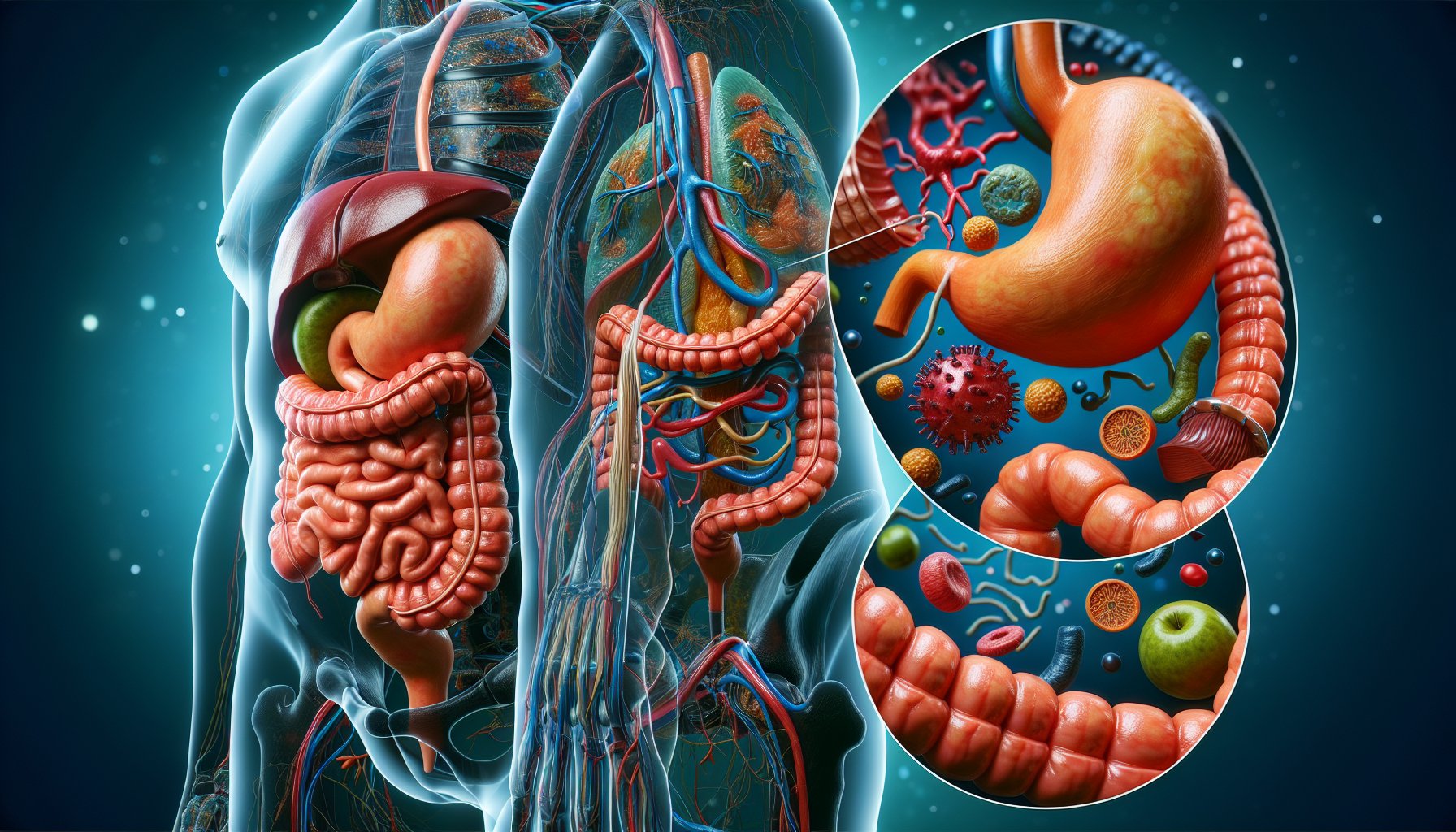Malabsorption is a condition that occurs when the body’s digestive system is unable to properly absorb nutrients from the food we consume. This can lead to a host of health issues, ranging from mild discomfort to severe nutritional deficiencies. Understanding the causes, symptoms, and treatment options is essential for maintaining optimal health.
Understanding Malabsorption
The process of digestion involves breaking down food into its constituent nutrients, which are then absorbed through the walls of the small intestine. When malabsorption occurs, it means that something is going awry with this absorption process. The causes of malabsorption can vary widely, including digestive enzyme deficiencies, damage to the intestine from diseases like celiac or Crohn’s disease, and even certain medications that interfere with nutrient uptake.
Symptoms of malabsorption can be broad and often resemble other gastrointestinal conditions. These can include chronic diarrhea, bloating, gas, fatigue, and unexplained weight loss. If you’re experiencing these symptoms, it’s important to consult with a healthcare provider for a proper diagnosis.
Diagnosing Malabsorption
To diagnose malabsorption, healthcare providers may employ a range of tests. These can include blood tests to check for deficiencies, stool tests to look for fats that aren’t being absorbed, and specific tests for conditions like celiac disease.
Once malabsorption has been identified, it’s crucial to determine the underlying cause. This will often involve looking at the individual’s digestive health as a whole, considering factors like diet, lifestyle, and any pre-existing conditions that may be contributing to the problem.
Dietary Interventions
One of the first steps in correcting malabsorption is modifying the diet. Depending on the cause, this could mean adding enzyme supplements to aid digestion, such as in cases where individuals have trouble facilitating gluten digestion. For others, it could mean adopting a diet that is tailored to reduce irritation and promote healing of the gut lining, such as a diet rich in prebiotic fibers to maintain gut health.
Increasing the intake of whole grains is another strategy that can improve colonic health and, consequently, nutrient absorption. The impact of whole grains on colonic health is well-documented, as they provide essential fibers and nutrients that support the gut microbiome.
Lifestyle Adjustments
Beyond diet, lifestyle changes can also play a significant role in managing malabsorption. Stress, for example, has been shown to adversely affect gut microbiota composition. Finding ways to manage stress, such as through mindfulness or exercise, can help reduce its impact on your digestive system and may correct malabsorption issues related to stress. For more information, consider reading about the effects of chronic stress on gut microbiota composition.
Moderate exercise is another key factor in improving digestive function. Regular physical activity has been shown to stimulate the gut and improve the efficiency of the digestive process. This can help ensure that nutrients are more effectively absorbed. You can learn more about this by exploring the impact of moderate exercise on digestive function.
Medical and Supplemental Support
In some cases, dietary and lifestyle changes may not be enough to correct malabsorption, and medical intervention may be necessary. This can include prescription medications to treat underlying conditions or specific supplementation to address nutrient deficiencies.
For instance, individuals with malabsorption due to enzyme deficiencies may benefit from enzyme replacement therapy. These supplements can aid the digestive process and improve nutrient uptake. It’s also essential to address any vitamin or mineral deficiencies directly through supplementation, ensuring the body receives the necessary nutrients for overall health.
The Role of the Gut Microbiome
A healthy gut microbiome is also crucial in managing malabsorption. Probiotics and prebiotics can help balance gut flora, which is essential for a well-functioning digestive system. The use of fermented foods, which are rich in natural probiotics, can be particularly beneficial in improving gut health. For more detailed strategies on improving gut health with fermented vegetables, consider reading this article.
Seeking Professional Guidance
If you suspect you’re dealing with malabsorption, it’s imperative to seek professional medical advice. A healthcare provider can help identify the root cause of your symptoms and create a personalized treatment plan.
In conclusion, while malabsorption can be a complex and challenging condition to manage, understanding the underlying causes, recognizing the symptoms, and seeking timely medical advice can lead to effective management strategies. Through a combination of dietary modifications, lifestyle changes, and professional medical support, it’s possible to improve nutrient absorption and achieve optimal health.
For further exploration of niche and specific resources that support the points made in this article, consider visiting these links:
- Exploring the Role of Dietary Fiber in Digestive Health
- Understanding the Gut Microbiome and Its Implications for Health
- The Impact of Physical Activity on Gastrointestinal Health
- Role of Probiotics in Digestive Health
- Clinical Approaches to Functional Gastrointestinal Disorders
By integrating this knowledge into your daily routine, you can take a proactive approach to managing malabsorption and enhancing your overall digestive health.



